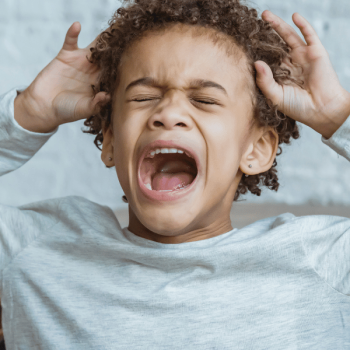
Parents, we know being a teenager is hard. Our kids are dealing with all the stuff we went through but now there’s the added pressure of their entire life being displayed on social media, TikTok challenges (thank goodness that wasn’t around when I was younger!), and oh yeah, a GLOBAL PANDEMIC. It’s a lot.
But can I get an Amen that it’s sometimes hard to be the parent of a teenager, too?
We all have the best intentions of helping and supporting our teens as they navigate these challenging (and unprecedented!) years. We want to empower them to make good choices. To prepare them for independence. To show them how to pursue positive relationships. But sometimes we’re just stumped. We know one crucial success factor is talking with our child about all of that, but what do we do if they won’t talk to us? What if we feel like we’re walking on eggshells in every conversation out of worry that they will get defensive or dramatic?
Well, it’s ironic we think they are “overreacting,” engaging in “drama,” or “freaking out”—because that is exactly what our kids think we are doing! And one of the clearest trends in our research for For Parents Only: Getting Inside the Head of Your Kid is that being able to talk well is usually dependent on our kids not thinking that we are going to freak out.
So what is it that kids see that way? And what can we do to instead build an environment where they want to talk to us, and accept guidance from us, for years to come?
“Freaking out” means “the display of any emotion”
Yeah. This is slightly crazy. But it has been really clear in the focus groups, interviews and nationally representative surveys with more than 3,000 teens and tweens over the years.
When a teenager is sharing a story (positive or negative), or describing something that happened, or bemoaning a challenge, they are subconsciously on high alert for what our reaction will be. And almost any sort of overt emotional reaction from parents can trigger their sense that we are “freaking out.” They can handle a polite, ultra-calm listening face. And if they are emotionally upset about something, they can handle (and actually want) empathy for their feelings (“I’m so sorry, honey”). But anything else risks being seen as an overreaction.
Now, to be clear: this doesn’t mean anything else will be seen as an overreaction, but that it could be. And if you’re seeing your teenager pull away instead of talking to you, odds are that you are triggering that “they are overreacting” thing far more than you realize.
Again, remember this sensitivity arises in part because they are the ones dealing with all sorts of crazy emotions that they don’t entirely know how to regulate. But in a way it makes sense: if they can’t yet handle their own emotions, how are they going to feel able to handle ours, too?
So how it is possible to settle our own emotions when our teen is talking to us, so we can be seen as the “calm listeners” they need?













